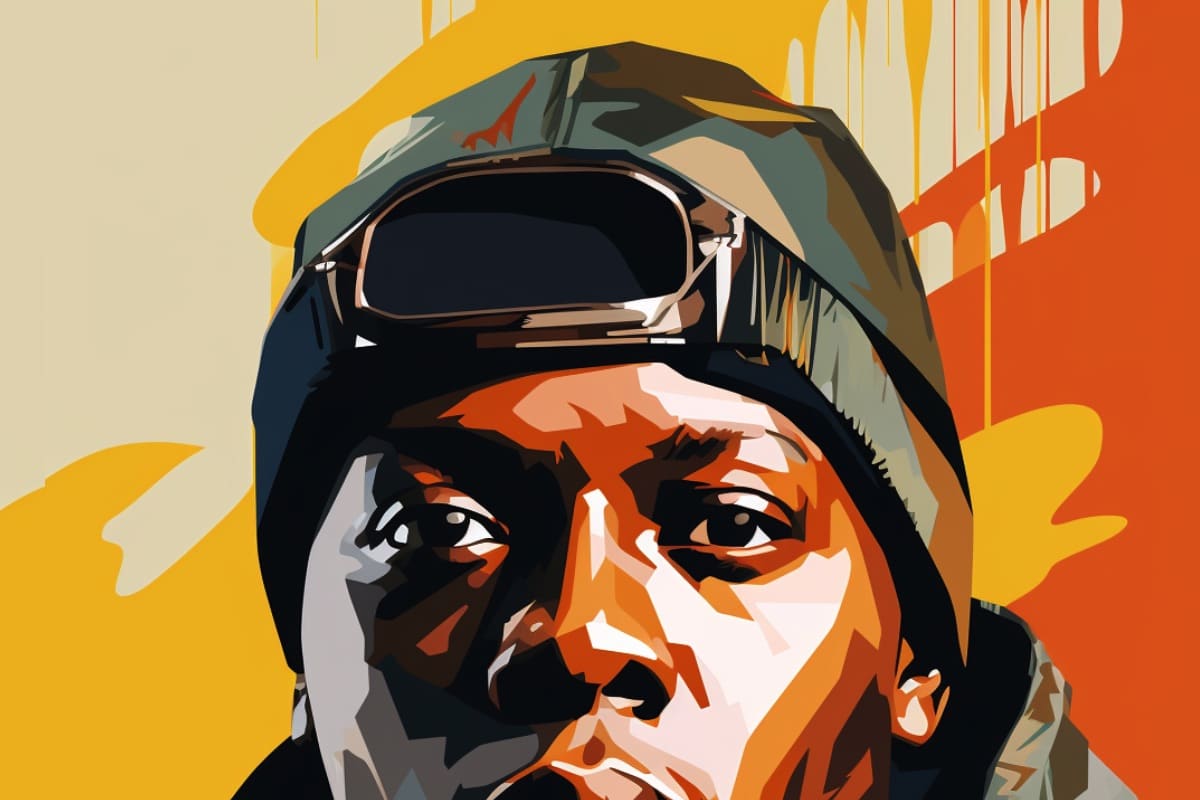Released: 2024
“Spill The Tea” by Smiley explores themes of self-identity, personal growth, and resilience. Through its introspective lyrics, Smiley narrates his journey from isolation to finding self-worth and success. He emphasizes a strong sense of individualism and hints at his aspirations, grounded in empathy for others.
The hook sets the tone for the entire song, highlighting Smiley’s feelings of being misunderstood and undervalued during his younger years. “I used to play Wayne on my mp3, No one in the school bus fucked with me,” he starts, portraying an image of isolation. Lil Wayne, an iconic rapper, symbolizes the ambitions and dreams he once had, which felt out of reach amidst his loneliness. Despite this, he flips the narrative by reinforcing his independence: “So fuck them all I’m really only here with me.” It’s a testament to his self-reliance and defiance against those who doubted him.
Moving into the verses, Smiley weaves in reflections on relationships and support networks. Lines like “I’m really only here with g, I’m really only here with knee” hint at select friendships or close family members that he truly values. The repetitive nature of this phrasing suggests a narrow circle of trust. It’s his way of drawing boundaries and emphasizing who really matters in his life.
Smiley cautions against spreading rumors or falsehoods with the line “Stop tryna spill the t,” where “t” refers to ‘tea,’ a colloquial term for gossip. By pushing back against this culture of rumors, Smiley stresses his preference for authenticity and honesty, further highlighting his journey of personal evolution.
In another set of lines, “I wanna go to Argentine, I wanna help the moms that need, We show love to the special needs,” Smiley shifts focus towards altruism. This reveals a compassionate side, showing his desire to contribute positively to society. His mention of Argentina could symbolize aspirations of travel or achieving a lifestyle that allows him to make meaningful differences globally.
When Smiley references “smiggle speed,” it introduces an internal rhythm or mindset that sets him apart. The term “smiggle” isn’t clearly defined, yet it feels unique to his persona, suggesting an unapologetic confidence in his individual pace or style of living and creating.
His admission, “I used to be bad at school, I used to be bad at rapping too,” uncovers vulnerability. It’s a nod to the humble beginnings from which he’s emerged, facing adversity both academically and in his music career. By stating “that’s all I really know what to do,” he affirms that writing music became his outlet and path forward, helping him rise above earlier struggles.
Smiley mentions an upcoming move: “I’m going LA next month for good,” illustrating a new chapter and a hopeful outlook toward success. Los Angeles, the hub of entertainment, represents his next step in cementing his presence in the music industry. It’s a brave move, signifying his commitment to his craft and vision of becoming “the goat,” or greatest of all time.
His mention of playing songs to a figure named “boat” reflects his aspiration to share his work with influential peers or mentors. This willingness to learn, encapsulated by his decision to start “reading some books,” signals maturity and a broadened perspective that are key in personal and professional growth.
By mentioning “Why don’t my friends promote” and “Why did my mom divorce,” Smiley uncovers personal and familial struggles. These lines depict real challenges in his support system and personal life, shedding light on his perseverance in the face of setbacks.
Ultimately, Smiley’s “Spill The Tea” delivers a raw, candid reflection of his life, both past and present. His journey from obscurity and insecurity to a space of aspiration and growth underscores a narrative familiar to many in the hip-hop community. It is a story of resilience, authenticity, and the desire to leave a meaningful impact both personally and socially.






